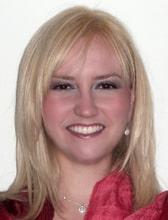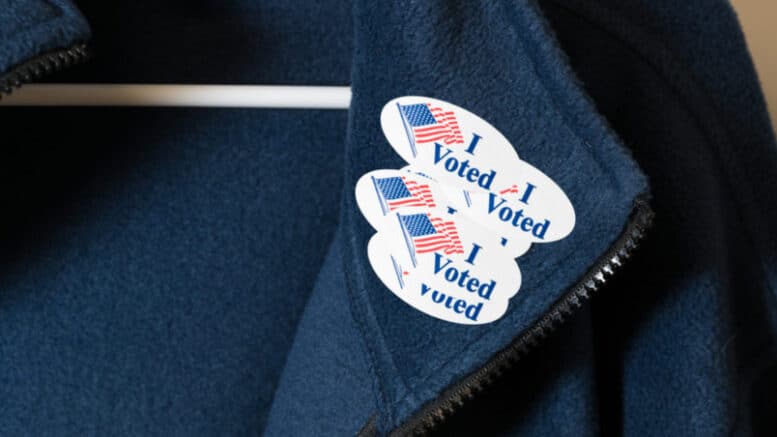
Anna Wiesfieler is a Visting Scholar at MGIMO, Moscow.
The 2008 US elections promise to bring historic results. Not only will the next president be the first sitting senator elected since John F. Kennedy in 1960, but the US will have either its first African-American president or its first woman vice president.
Yet the candidates themselves are only a small part of what makes this election historic. The next US president will have a myriad of issues to address. Not least amongst them is the steadily declining bilateral relationship between the US and the Russia.
While in 2001, Russian President Putin was the first world leader to call US President Bush after the attacks of 9/11, the overall bilateral relations have been declining since 2002. Putin’s 2007 speech in Munich was treated by many as a direct challenge to the US. Not taking the challenge seriously, the majority of the US response came the next day when Secretary of Defense, Robert Gates, said that “one Cold War was enough” and did not expand significantly beyond that. This was indicative of the growing neglect by the Bush administration of its Russia policy, which largely lacked both form and function. Thus, as a new US administration takes office in less than three months, many in Moscow are watching to see what the future of bilateral relations will look like.
Only six months ago, according to one survey, only 4% of Americans were concerned about Russia. Russia was so far off the presidential campaign radar that the topic of Russia came up rarely in the primary debates, most notably when Senator Clinton mispronounced President Medvedev’s name and when Gov. Richardson of New Mexico briefly touched on arms control issues, which nearly always involve Russia, a major holder of nuclear weapons and a major exporter of arms.
In September, Russia ranked in polls as a one of the top four threats to the US. In the second of three presidential general election debates between Senator Obama and McCain held in early October, Russia became one of the few countries that both candidates touched on, with the others being Iraq, Afghanistan, and Iran.
Senator McCain, while relenting slightly in recent weeks, has taken a harsh stance towards Russia, proposing to either isolate it or at very least, to treat Russia as an antagonistic partner to be handled with care. Senator Obama, staying consistent with his message of diplomacy, urges a more cooperative relationship. A good example of the contrast can been seen in their views of the future of the G-8: while Senator McCain suggests removing Russia from the G-8, Senator Obama suggests expanding the G-8 to the G-12, and keeping Russia among those twelve.
However, many in Moscow actually prefer McCain to Obama as someone to work with in the future. McCain has a long history on relations with Russia and is seen as a known quantity. Obama, a junior Senator for Illinois, much like Medvedev, has lived a significant portion of his life after the collapse of the Soviet Union and the end of the old Cold War. While this means that he is seen as not having a “Cold War mentality,” it also makes him an unknown factor. With debate brewing as to whether the Cold War has been rekindled or if a new one is starting, tensions are high as those in charge of generating and maintaining policies seek a new set of protocols from which to operate.
Obama has been working to improve the clarity of vision for relations with the Russians, however. Last week saw the release of Obama’s book, The Audacity of Hope, in Russian translation to Russian markets. One of his foreign policy advisors, Mike McFaul, also made a trip to Moscow to meet with various Russian officials and interest groups, speaking off the record and answering questions.
McFaul addressed how US relations with Ukraine and Georgia might affect US-Russia relations in the future. Speaking at the Peking Hotel in Moscow at an event organized by Democrats Abroad Russia for Americans living in Russia, McFaul established that this is potentially a major campaign issue for Senator Obama. There are a large number of swing voters (several million) whose heritage comes from Eastern Europe or the Caucasus region. For these voters, US-Russia relations and relations with states in those regions has become a vital issue that could potentially swing votes to one candidate or the other.
The day before, at the Carnegie Endowment Center in Moscow, McFaul also fielded questions ranging from explanations of the primary and general election process to the August crisis in Georgia and Russia’s concerns about Ukraine and Georgia receiving NATO membership action plans.
Pointing to a number of Senator Obama’s statements, including one from April 2008 (before the crisis) where Senator Obama was concerned that violence may erupt in the southern part of the Republic of Georgia, McFaul conveyed concern about the situation in the Caucasus. Speaking to NATO enlargement, he noted, as have many others, that both US candidates for president support NATO expansion. However, Senator Obama has consistently referred to NATO rules whereby the people of a candidate state must support entry into NATO and that NATO rules state that not only must territorial disputes be resolved before entry into the Alliance, but that a member state cannot use violence against its own people.

Georgia, Russia, and Ukraine share borders around the Black Sea.
By these standards, Ukraine is far from united on the issue of entry into NATO. While many are undecided according to some polling results, only a minority of the population definitively support joining and a very vocal percentage are against it. If Ukraine were to receive a membership action plan, it would be required to hold a referendum on the issue and at this time many experts believe that such a referendum would fail.
Georgia is also not ideal for entry. If Georgia had had a NATO membership action plan at the time of its use of force in South Ossetia, it would have likely been disqualified from further consideration. Not only did the incident highlight Georgia’s active territorial disputes, but its actions would have also likely been considered by NATO violence committed by Georgia against Georgia’s own people. Georgia’s invasion of South Ossetia marked the beginning of this year’s armed conflict in the region.
Thus, membership action plans to either Georgia or Ukraine are unlikely in the near future. This is compounded with Germany promising to veto any such requests that may come up at the next NATO meeting, scheduled to be held in December 2008.
Another major issue is arms control. Both Democrats and Republicans alike have recognized this as one offering a high possibility of successful cooperation between Russia and the US, as it has traditionally been so. However, the matter is complicated by several issues. First, the current Strategic Arms Reduction Treaty (START) is set to expire soon and negotiations for a new treaty have been suspended as a result of the August crisis. Furthermore, concern has been raised over the impact which may result from the Bush Administration’s decision to withdraw from Congress the bill for the “123 Agreement” (U.S.-Russia Agreement for Peaceful Nuclear Cooperation,) which was meant to increase civil nuclear cooperation between the US and Russia while at the same time ratifying a nuclear treaty with India.
This election also shows the increasing importance of oversees voters. According to State Department estimates (which are rough as Americans are not required to inform the government that they have moved permanently to another country), nearly seven million Americans live abroad. This is slightly more than the population of Massachusetts. It includes not only a substantial number of those in military service, but also a growing number of businessmen and professionals who founded businesses or new branch offices abroad or who have taken positions abroad with internationally-minded companies. As the world’s economy continues to globalize, the amount of Americans living oversees and who are particularly sensitive to foreign policy issues will only grow and their votes will be more valuable to seek.
Interestingly, Americans living overseas were only granted the right to vote in 1964. In the 1960s, Democrats living overseas formed a group known as “Democrats Abroad” and lobbied for the right to participate in federal elections. It was granted as part of the 1964 Voting Rights Act. Democrats Abroad as a group has continued function and now has groups in over 70 countries and actively work in get-out-the-vote activities and campaigning abroad. The Russia branch currently has nearly 300 confirmed members and has held several activities this year, including McFaul’s presentation and a year-long voter registration and awareness campaign. In mid-October the branch had a voting event in Moscow where they assisted over 100 US citizens to fill in Federal Write-in Absentee Ballots, which serves as a back-up for those who do not receive their state ballots in time. The group is rounding out its line up of events with “watch events” so that Americans and Russians can watch the results from Moscow, St. Petersburg, and Irkutsk.
It should also be noted that Republicans Abroad also has a Moscow chapter, although they have had a much less visible presence there to date.
Although neither candidate has released a comprehensive policy plan towards Russia, as President, neither will be able to ignore Russia. Despite the challenges that lay ahead, opportunities for fruitful cooperation do exist and an increasing number of voters are demanding that these opportunities be sought out and perused.


